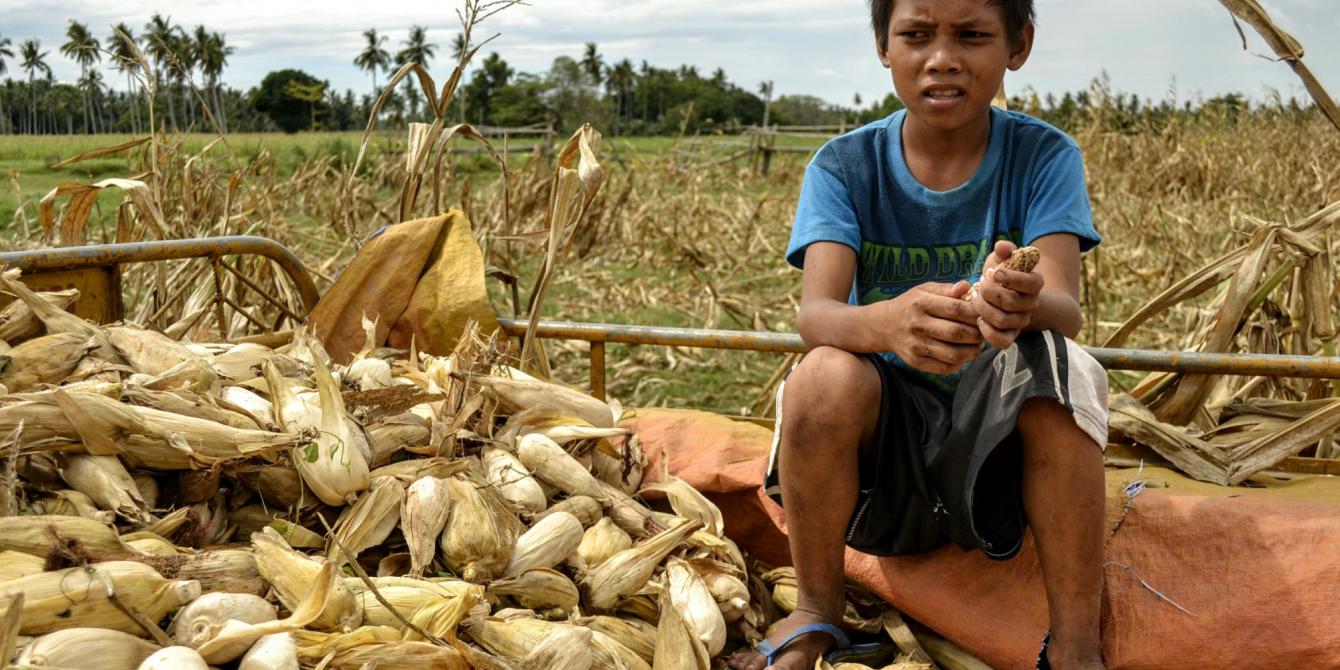OXFAM REACTIVE: On the recent statement of President Rodrigo Duterte on the Paris Climate Agreement

International aid agency Oxfam shares President Rodrigo Duterte’s views that indeed, the Philippine government should continue to push developed countries historically responsible for causing climate change, to increase climate funding and cut their emissions fast enough to forestall a climate change catastrophe.
“The Philippines has been recognized as a strong voice in calling for climate justice in global climate negotiations, not least because it is one of the most climate-vulnerable countries in the world. During negotiations in Paris, the Philippines led the influential Climate Vulnerable Forum, which is an international partnership of more than 40 countries highly vulnerable to a warming planet, in pushing rich, high-emitting countries to increase their ambition to limit global warming to ‘well below 2 degrees C above pre-industrial levels’,” says Dante Dalabajan, Economic Justice Programme Manager of Oxfam in the Philippines .
“It is important for the country, led by the President, to continue being the voice of the poorest, lowest-emitting and most vulnerable people on the world stage. Yes, the Paris Agreement is far from perfect, but it is what we have to work with to ensure countries like the Philippines are financially and technically supported as they shift towards a low-carbon development pathway. It is in this spirit that our country should uphold our commitment to the Paris Agreement,” Dalabajan added.
Oxfam recognizes that vulnerabilities to climate change is inextricably linked to economic inequality. In a report released during the Paris summit, Oxfam demonstrated that climate change is a crisis that is driven by the greenhouse gas emissions of the ‘haves’ that hits the ‘have-nots’ the hardest.
“We , therefore, urge President Duterte and his administration to uphold its promise to deliver ‘real change’ for the poorest people, who are both the least responsible for and the most vulnerable to climate change, in the Philippines and beyond. “
Nationally, this would mean supporting farmers as they shift to climate-resilient crops and practices, and utilizing the People’s Survival Fund to help vulnerable local government units and communities to effectively adapt to a warming planet. It also means pushing for a development path that is more and more fuelled by clean energy sources,” Dalabajan added.
Internationally, the Philippine government must continue to engage multilateral processes to address the gaps in the Paris Agreement, to ensure binding commitments on the provision of support for vulnerable countries, mobilizing adequate finance to meet a clear climate change adaptation goal, and recognizing the principle of Common but Differentiated Responsibilities.
“Oxfam, for its part, will continue to support local and national development partners who are working to address the vulnerability of communities by building their adaptive capacities and enhancing resiliency. We are also looking forward to working with the new administration as it crafts the Philippine Development Plan to help ensure that climate change adaptation is treated as a cross-cutting priority and that it puts the needs of the poorest and most vulnerable first,” Dalabajan further added.
For more information, please contact:
Rhea Catada
Mobile: 0928 5042911; 0917 365 4649
Email: rcatada@oxfam.org.uk, rhea.catada@gmail.com
Oxfam in the Philippines

 Follow us on Facebook
Follow us on Facebook Instagram
Instagram Follow us on Twitter
Follow us on Twitter LinkedIn
LinkedIn